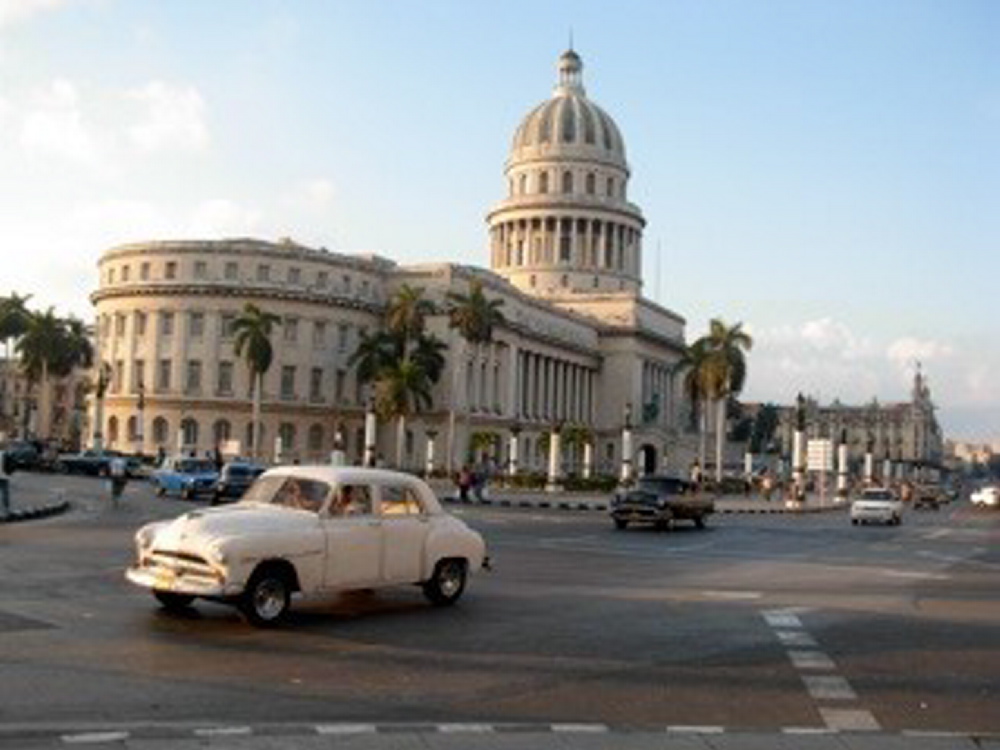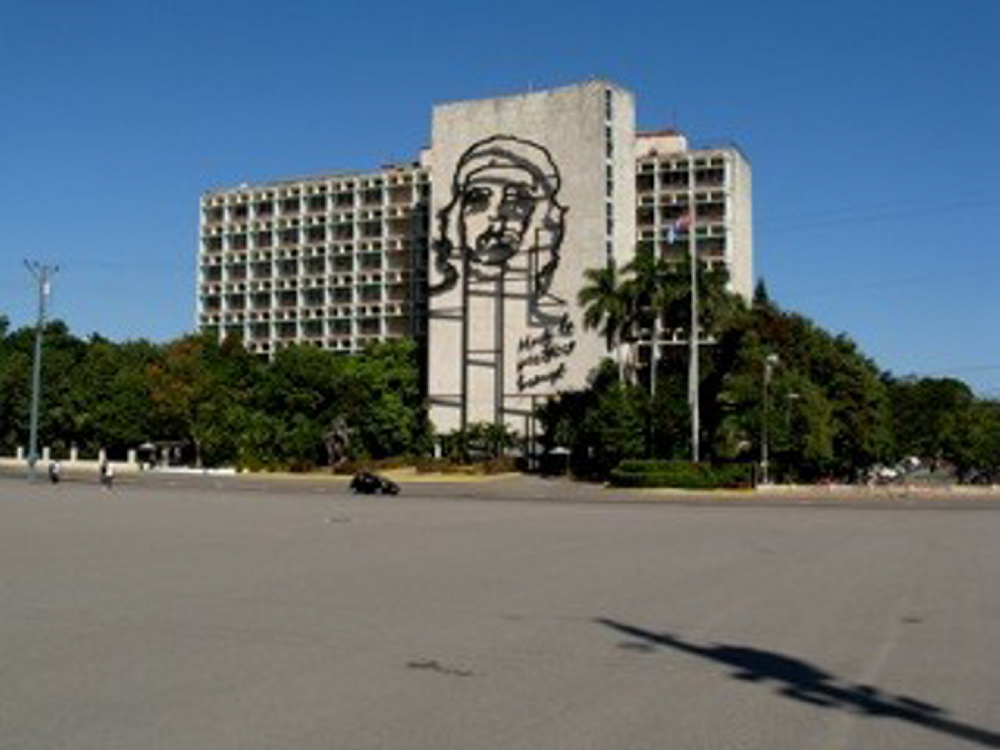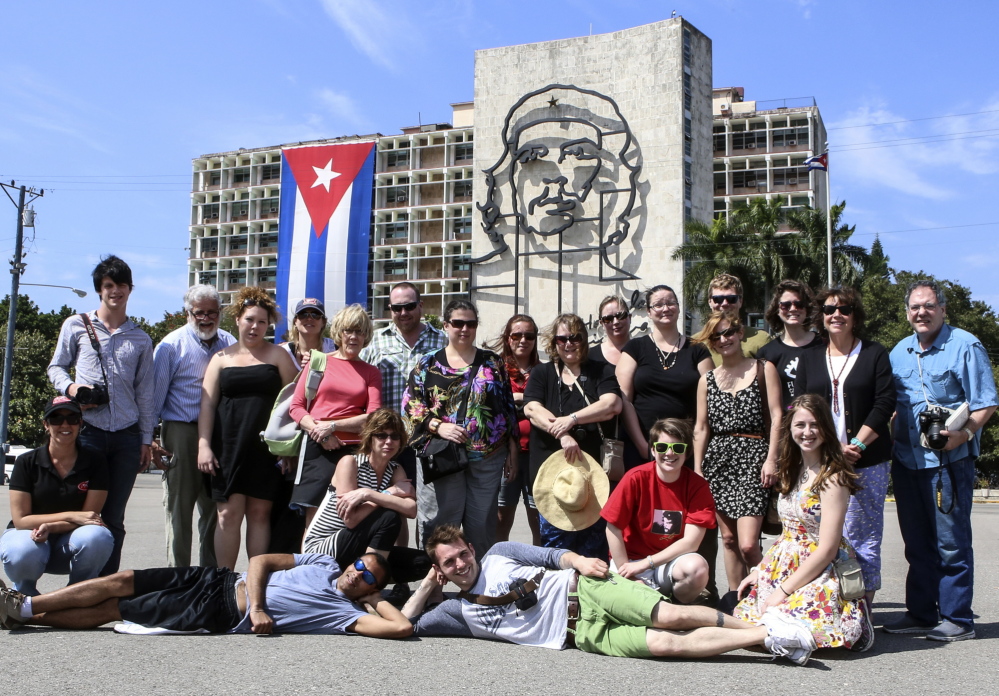The decision to mend the decades of shattered diplomatic relations between Cuba and the United States is not expected to affect significantly the restrictions on Americans visiting Cuba as simple tourists.
The White House said it plans to make it easier for Americans to provide business training for private Cuban businesses, but it did not expand the 12 categories under which U.S. citizens can obtain licenses to visit the communist country.
Those are limited to things such as visiting relatives and journalistic and religious activities.
But a good many Mainers already have qualified for a license issued by the U.S. Treasury Department allowing them to visit the island nation under programs that allow visits for educational purposes.
“We’ve gone for so many years without any substantive change in diplomatic relations, and now we suddenly have at least a first significant step being made,” said Waterville attorney William Lee, who said a fascinating part of his visits was seeing how little Cuba has changed physically over the past half-century.
“It is as if you are taking a huge step back in time,” Lee said. “You are thrust back into an era of pre-cellphones. You can’t call anyone up. If our group split up, we had to do it the old-fashioned way.”
Lee teaches government at Colby College in Waterville. Two years ago, he led a trip of 16 students in a comparative legal studies course that compares and contrasts the two countries’ legal systems. For his students, being without the instantaneous communications they have grown up with was an adjustment that was not without its benefits.
“They actually enjoyed being disconnected from all their electronic devices. For at least a period of time, they were able to suspend that dependency,” Lee said. “Their reaction was one of more relief than tension.”
Faculty members from the University of Maine at Augusta also have visited and are planning another visit, hoping the normalization in relations will enable students to participate in an as-yet undetermined service project.
“One of the reasons that we chose Cuba is that we had a suspicion that would happen very fast, and it did,” said UMA assistant professor of photography Robert Rainey, who took part in the trip this spring. “One of the reasons that we wanted to go last spring is that this is a time capsule, and the students did see the time capsule.”
According to Rainey, Havana, which has multiple colonial influences, is an architectural gem that has been relatively untouched by time, thanks to the U.S. embargo.
He also visited Cuba 20 years ago as an executive for Miramax attending the Cuban Film Festival.
Students who went on the trip said they were surprised to find tourists in Cuba from all over the world — except the United States.
“We would see people from everywhere, speaking German, Japanese or Russian or whatever, and they were all free to come and go,” said former UMA student Steve Heddericg, who graduated in May with a degree in liberal studies.
He later added that he thinks normalizing relations will benefit both countries.
“It’s sort of like we, as Americans, have just been left out,” he said.
Heddericg, who is semi-retired, said he hopes to return to the country if he can.
Lee said visiting the country is a valuable experience for students. Comparing the two countries’ economic philosophies, Lee said that in the United States, essentially everything is allowed unless it’s prohibited. In Cuba, the opposite philosophy controls. The primary goal is to create a socialist state with no socioeconomic classes, so citizens are not allowed to engage in any kind of economic activity unless it’s specifically allowed by their government.
“If you start understanding that distinction in how society is organized, you start understanding how our system operates is a whole lot better, because you see how it operates very differently elsewhere,” Lee said.
Both educators said they support the president’s plan to improve relations between the two countries.
According to Lee, who serves as Waterville city solicitor, lifting the trade embargo could help bring about social change in Cuba by making it more difficult for the Castro regime to blame the country’s poor economic performance on America.
“Quite simply, if we want to influence Cuba to turn more toward our system of government or our way of life, we’re going to accomplish that a whole lot more effectively by allowing interaction between Cubans and Americans,” he said. “If all you do is isolate one group, then you prevent the free flow of information, and obviously, that hasn’t worked.”
Rainey said he thinks the improvement of U.S.-Cuban relations could lead to more educational opportunities for U.S. students.
However, the two professors also agree the outright removal of the U.S. trade embargo could be a long time coming.
“This is just the beginning of it,” Rainey said. “I believe that this will be a slow process.”
Lee said there are many travel and economic issues that remain to be resolved. For example, the U.S. government grants political asylum to any Cuban citizen who sets foot in America.
Additionally, he does not expect Cuba to allow U.S. businesses to locate in the country without ceding an ownership interest to the ruling communist regime.
There’s also the issue of the Guantanamo Bay Naval Base, which dates to 1903, when the U.S. government leased the site as a coaling station.
“There are things that Cuba believes should have ended a long time ago, but can Cuba kick us out? Obviously not,” Lee said.
Heddericg said the real value of visiting Cuba for him was simply to see it for himself.
“It’s kind of like a forbidden fruit, and you get to see what it’s like, not what you’re hearing from the outside,” he said.
Evan Belanger — 861-9239
ebelanger@centralmaine.com
Twitter: @evanbelanger
Send questions/comments to the editors.








Success. Please wait for the page to reload. If the page does not reload within 5 seconds, please refresh the page.
Enter your email and password to access comments.
Hi, to comment on stories you must . This profile is in addition to your subscription and website login.
Already have a commenting profile? .
Invalid username/password.
Please check your email to confirm and complete your registration.
Only subscribers are eligible to post comments. Please subscribe or login first for digital access. Here’s why.
Use the form below to reset your password. When you've submitted your account email, we will send an email with a reset code.